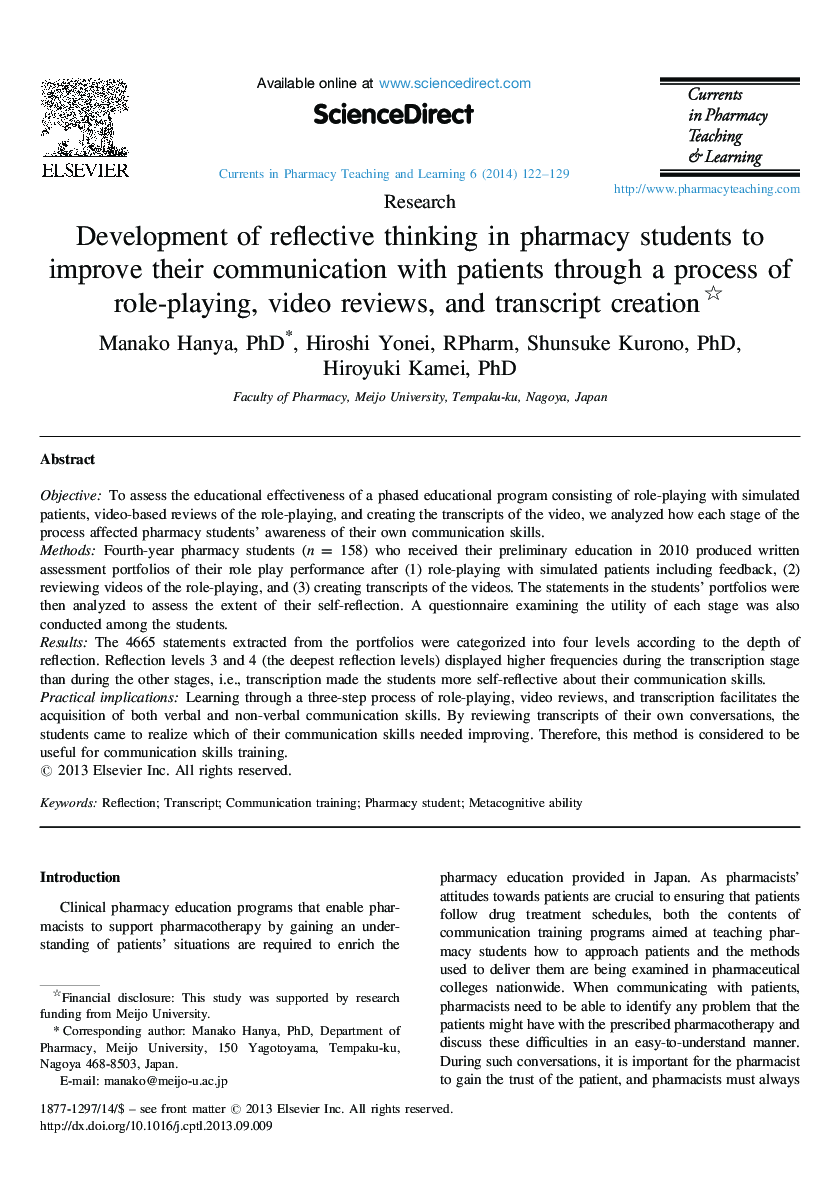| Article ID | Journal | Published Year | Pages | File Type |
|---|---|---|---|---|
| 353219 | Currents in Pharmacy Teaching and Learning | 2014 | 8 Pages |
ObjectiveTo assess the educational effectiveness of a phased educational program consisting of role-playing with simulated patients, video-based reviews of the role-playing, and creating the transcripts of the video, we analyzed how each stage of the process affected pharmacy students’ awareness of their own communication skills.MethodsFourth-year pharmacy students (n = 158) who received their preliminary education in 2010 produced written assessment portfolios of their role play performance after (1) role-playing with simulated patients including feedback, (2) reviewing videos of the role-playing, and (3) creating transcripts of the videos. The statements in the students’ portfolios were then analyzed to assess the extent of their self-reflection. A questionnaire examining the utility of each stage was also conducted among the students.ResultsThe 4665 statements extracted from the portfolios were categorized into four levels according to the depth of reflection. Reflection levels 3 and 4 (the deepest reflection levels) displayed higher frequencies during the transcription stage than during the other stages, i.e., transcription made the students more self-reflective about their communication skills.Practical implicationsLearning through a three-step process of role-playing, video reviews, and transcription facilitates the acquisition of both verbal and non-verbal communication skills. By reviewing transcripts of their own conversations, the students came to realize which of their communication skills needed improving. Therefore, this method is considered to be useful for communication skills training.
